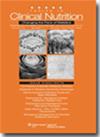Bowel Dysfunction and Enteral Nutrition in Critically Ill Adult Patients
IF 0.4
4区 医学
Q4 NUTRITION & DIETETICS
引用次数: 0
Abstract
This retrospective study investigated diarrhea, constipation, associations of enteral nutrition (EN), and medications in critically ill patients (n = 4118). Data were retrieved from electronic health records. Over half (68%) of patients had diarrhea and 8% had constipation. Diarrhea and constipation were more common in patients in the EN group (n = 799) than in the no-EN group (n = 802). Interestingly, patients who received EN were administered more medications with lower incidence of diarrhea than patients who did not receive EN. The findings of this study highlight the importance of reviewing medications (ie, opioids, prophylactic laxative regimens, and antibiotics) as well as formula composition for potential contributing etiologies to bowel movement abnormalities in critically ill patients.危重成人患者肠功能障碍与肠内营养
这项回顾性研究调查了危重患者(n=4118)的腹泻、便秘、肠内营养(EN)和药物的相关性。数据是从电子健康记录中检索的。超过一半(68%)的患者腹泻,8%的患者便秘。腹泻和便秘在EN组患者中更常见(n=799),而非EN组患者(n=802)。有趣的是,与未接受EN的患者相比,接受EN治疗的患者服用了更多的药物,腹泻发生率较低。这项研究的结果强调了审查药物(即阿片类药物、预防性泻药方案和抗生素)以及配方组成对危重患者排便异常潜在病因的重要性。
本文章由计算机程序翻译,如有差异,请以英文原文为准。
求助全文
约1分钟内获得全文
求助全文
来源期刊

Topics in Clinical Nutrition
NUTRITION & DIETETICS-
CiteScore
0.90
自引率
20.00%
发文量
34
期刊介绍:
Topics in Clinical Nutrition (TICN) is a peer-reviewed, quarterly journal designed as a resource for the continuing education and clinical practice of dietitians and nutritionists. Each issue addresses topics of interest primarily to dietitians and nutritionists, students and interns in professional training programs and other health care personnel involved in the nutritional care of patients. Articles include translational research reports (work that applies new knowledge to practical effect), practice projects, evidence-based literature reviews, case studies and book reviews, and articles that highlight education theory and applied research which share the tools and techniques of nutrition and dietetics education.
 求助内容:
求助内容: 应助结果提醒方式:
应助结果提醒方式:


